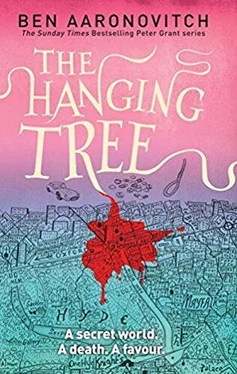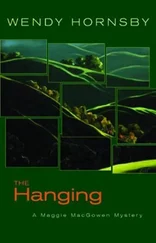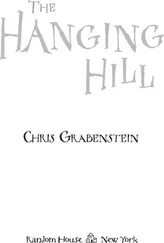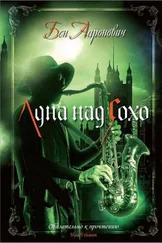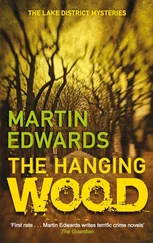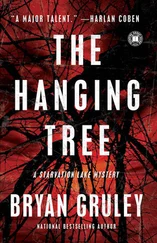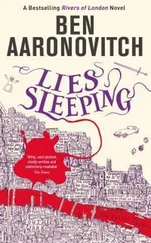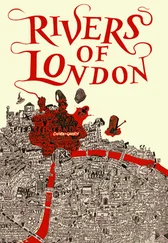‘Please,’ he said when he saw us. ‘Come in – make yourselves at home.’
Guleed gave him a sharp look.
‘Can I ask how you’re feeling, sir?’ said Guleed.
Mr Chorley gave her a puzzled glance and then shrugged.
‘Bloody awful,’ he said. ‘But thank you for asking.’
The entrance hall was low ceilinged, made lower by the original roof beams that crossed it. There was a staircase with bare wooden risers varnished a dark brown leading upstairs, a square archway into what I learnt later was called the snug, with a real fireplace, old leather furniture and the sort of worn throw rug that really needed to have an Irish wolfhound curled up asleep on it.
I glanced at the staircase and Guleed took up the cue – asking whether we could see Christina’s room first. Mr Chorley was welcome to supervise, she said, although in reality we were both hoping he didn’t.
In the end he led us upstairs to the first floor where the hallways were covered in a thick cream carpet that must have been a bugger to clean.
‘She pretty much had the run of this floor,’ he said, although officially the main bedroom with its en-suite was hers and the other rooms were for guests. Then he left us to it, thank god, and said that when we were finished there was coffee in the kitchen.
The main bedroom and bathroom were far too neat, the modern reproduction brass bed was neatly made, a ghastly pink vanity and matching wardrobe had their drawers closed and when we opened them to look inside we found the clothes neatly folded – even the underwear. Guleed tutted. The room had been practically scrubbed clean, probably since Christina’s death. That was odd. Grieving parents often put off making any changes to a lost child’s things. But grief smacks everyone in the face in a different way, so I didn’t read anything into it.
There was no school work – presumably that had all been in her dorm room back at St Paul’s – but there was an interesting collection of books. Lots of YA in the American ‘drown the sister’ school of social realism, plus various Malorie Blackmans, Shirley Jackson’s We Have Always Lived in the Castle and Land of Laughs by Jonathan Carroll.
‘A bit more Goth than I was expecting,’ said Guleed, and I remembered that we’d collared Reynard in that Gothic paradise in Archway. Perhaps that’s what they had in common.
There was nothing under the bed, inserted into the mattress or taped into an envelope under the knicker drawer. The lone stuffed animal propping up the headboard had no suspicious lumps, zips or loose seams, and valuable seventeenth century magical artefacts were definitely not lodged under any loose floorboards.
We widened our search, softly stepping out into the corridor and moving as quietly as possible into the bathrooms and guest bedrooms. It’s not that we were creeping about, but we figured what Mr Chorley didn’t hear us doing wouldn’t worry him – us police are thoughtful that way.
We also have no shame, so once we’d found nothing of note on the first floor we split up, Guleed to check the second floor, where Mr Chorley had his domain, while I went downstairs to keep an eye on the man himself and, with a bit of luck, look at his motor.
I found him in the kitchen where he offered me tea, but I asked if I could see the garage. He asked if I liked cars and, when I said I did, he gave me a wan but genuine smile.
‘Then you’re going to like this,’ he said.
The garage was clean and, judging from the perfectly balanced temperature and humidity, had the sort of environmental control system that Postmartin demands for his most fragile historical documents. The brickwork was painted a bright glossy white with just the Pirelli Calendar and an immaculate tool rack to break up the sterility. All the better for us to appreciate the car.
The Ferrari was a ridiculously beautiful motor, fire brick red with proper sleek 70s sci-fi lines so that it looked like any second the wheels would fold down to become lift engines and the vehicle would launch itself back to the future that never was. It also had a completely insane de-bored 2.8 litre V8 engine that could do nought to a hundred in less time than it takes to say it. And, from the point of view of the magic police, no electronic transmission — which meant you couldn’t accidentally wreck your own motor when in hot pursuit. I’m not saying that Nightingale should have traded in the Jag, but would it really have killed him to lay down a couple of Italians from the golden age of supercars? Just as an investment, if nothing else.
I asked Mr Chorley if he ever took it out for a spin.
‘Absolutely,’ he said. ‘There’s no point owning a car like this if you never drive it.’
I was just wondering if there was a way I could wrangle a ride or, failing that, just a go in the driving seat with the engine on when Martin Chorley checked his watch. It was a slim steel coloured Montblanc Timewalker, two grand and change from reputable stockists and the sort of high quality wind-up that any practitioner would be proud to wear.
I literally nearly shat myself.
I was suddenly certain that I was bonding over a motor with the Faceless Man, and if it was him then he already knew who I was. Which meant that either he was just playing with me or was still hoping to maintain his cover. I considered whether I could tackle him right then – but he was fast and ruthless, and if I didn’t take him down with the first blow I probably wasn’t going to get a second attempt.
He didn’t turn his back on me or lift the engine cover and conveniently bend over so I could concuss him with the first blow and, to be totally honest, I bottled it – which, surprisingly, is approved police procedure.
Evacuate, report and contain – that’s what I was going to say in the ever-expanding Falcon Operations Manual – assuming I lived long enough to finish writing it.
I sighed, trying not to make it theatrical, and said that I would love to stay and talk about cars but we had to get back to London. He asked whether we’d found anything useful and I explained that we hadn’t but you had to cross your I’s and dot your T’s.
‘I’m just pathetically grateful that you haven’t closed the case,’ he said.
I assured him that the full might and majesty of the Metropolitan Police was focused on finding the truth behind his daughter’s death. If he would like a Family Liaison Officer to be assigned to him I’d be happy to oblige.
And I was thinking that now I understood the ferocity with which Aiden Burghley had been dismembered. Not because he was an obstacle, or as warning to others, but because Martin Chorley held him responsible for his daughter’s overdose.
Damn, but Phoebe must have been seconds from death – the arrival of the Americans had saved her life.
He shook my hand; his palm was warm and dry, his grip firm but not macho. A salesman’s shake, a grifter’s shake, a psychopath’s handshake. He gestured for me to proceed him through the garage door. A line of sweat ran down my back as I turned away and stepped outside.
‘I’ll just call my colleague and let her know we’re going,’ I said and thought, shit, shit, shit, over-thinking it, stupid, stupid, stupid. I pulled out my phone and called Guleed.
‘Yeah, they need us back at Belgravia,’ I told her.
The garage was parallel to the back edge of the house and there was a good six metres of drive between me and the Asbo. I lurched at a sudden grinding sound but it was only the motorised garage door closing. I disguised it by converting it into a half turn and cheery wave for Mr Chorley who stayed by the garage and watched me go.
Ahead of me Guleed sauntered out of the front door and over to the Asbo where she leaned against the bonnet. She raised a hand in a lazy salute, aimed behind me so presumably it was for Mr Chorley, who I deduced was still watching me go. I slipped my keys out of my pocket and, without pointing them at the car or doing anything else obvious, I pressed the unlocking remote.
Читать дальше
